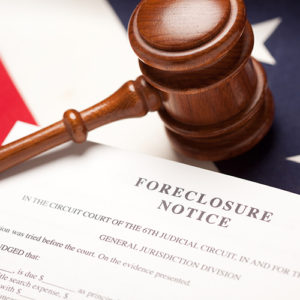New Jersey was one of the states hit hardest by foreclosures in the most recent recession, and those effects have lingered for a decade. Now, two foreclosure reform bills favorable to consumers and community associations were recently signed into law by Governor Murphy.
Condominiums
The Condominium Act gave condominium associations a limited priority over prior recorded mortgages and other liens (except municipal liens or liens for federal taxes) to recover unpaid common expense assessments after a sheriff sale, brought about by foreclosure, where the association had a properly recorded lien. Prior to the new bill, condominiums could only collect an amount not to exceed the aggregate customary condominium assessment levied against the unit owner during the six month period prior to the recording of the lien. Thus, no matter how many months of delinquency had accrued and no matter how long it took the mortgage lender to foreclose, the condominium association could collect no more than six months of accrued delinquent common assessments from the sale proceeds. As a result of the new legislation, that portion of the Condominium Act has been changed. Effective in April of 2019, the limited priority given to the association’s unpaid common expenses has been expanded. Under the new law, the limited priority of each association lien can be cumulatively renewed annually as necessary. Instead of only six months of assessments once every five years, the association’s priority is expanded to six months in each of five years. Any lien that becomes 60 months old expires. However, any subsequently recorded liens remain valid until the first day of the 60th month after the date of recording. The result is that Condominium Associations can collect more from delinquent properties, reducing the burden on all other members of the community and benefitting the association’s budget.
Community Associations, Homeowner Associations
Prior to the new law, the limited priority was not even available to community associations that were not established as condominiums. Homeowner associations, property owner associations, community associations –anything not a condominium, did not have the benefit of recovering even six months outstanding expenses in the event of foreclosure. However, effective immediately, the Planned Real Estate Development Full Disclosure Act was amended to include all other associations (except cooperatives) in granting the same priority over prior recorded mortgages now enjoyed by condominiums. Additionally, as with condominiums, the benefit was increased. Under the new law, not only are six months of common expense assessment given a limited priority over a prior existing mortgage (with some exceptions), the six month priority also accumulates annually if the delinquency continues for up to 60 months. Further, for both condominium and other forms of community associations, the new legislation allows associations to include and recover attorney’s fees incurred in the collection of the unpaid assessments.
Foreclosure Procedures
Equally important, new legislation signed by Murphy shortens the time period within which a sheriff’s sale must take place after foreclosure judgment has been entered on a vacant and abandoned property. Prior to this law, community associations had routinely been faced with subsidizing units in foreclosure for long stretches of time when the lender delayed scheduling the auction of the unit by the sheriff (a sheriff sale) for years after judgment was obtained. Most people don’t realize that even after the mortgage holder obtains a judgment in foreclosure, the title to the property does not actually change from the delinquent unit owner to the bank or another purchaser until an actual sale takes place leaving the common expense delinquency to continue indefinitely without good recourse for the association to force a change. The burden falls on the other owners in the community to pick up the maintenance fees for the unit or home that has stopped paying without recourse to the lender. If the lender delays foreclosure of that unit, or if the court system is otherwise unable to effect timely completion of the foreclosure, the cost burden on the association and its members is felt for years. The new legislation serves to shorten the time within which a lender must schedule an actual sale after a judgment of foreclosure is obtained.
Consulting a law firm well-versed on the ins and outs of collections for community associations is critical for associations. Based on decades experience in all aspects of community association law, especially collection requirements, Radom & Wetter recommends that liens be recorded in a timely manner and that associations take action to collect delinquencies sooner rather than later, so they do not become a threat to meeting the necessary obligations of the association.
